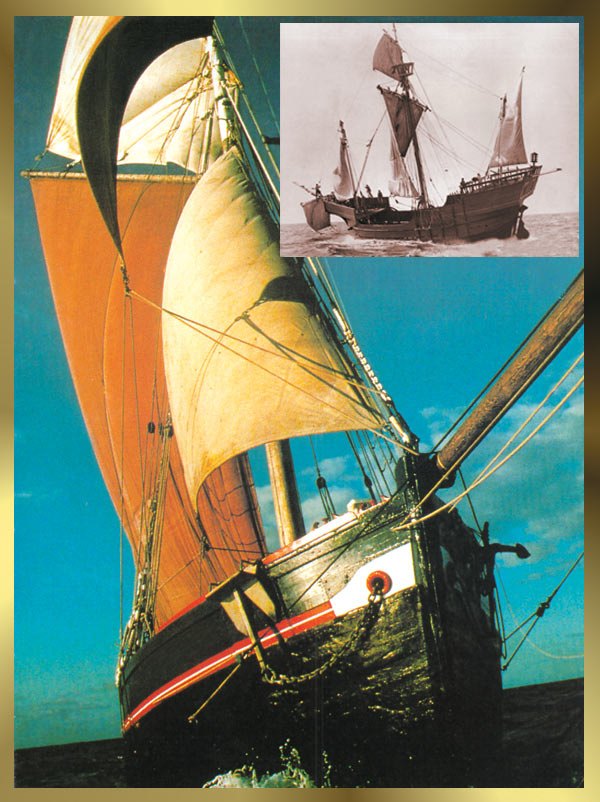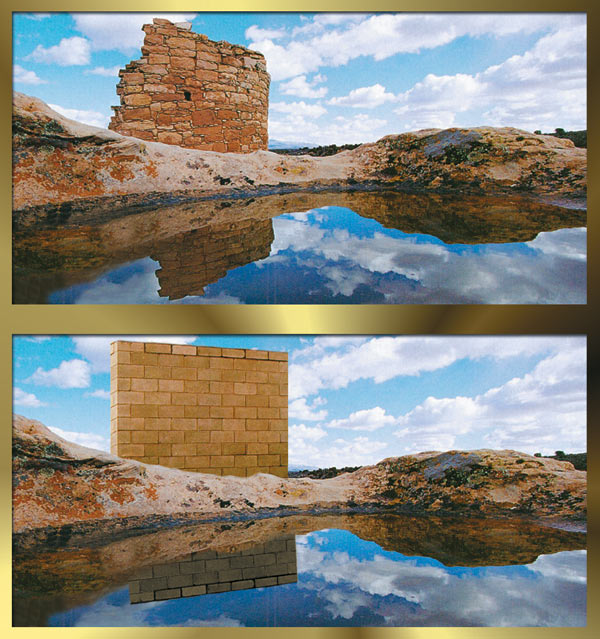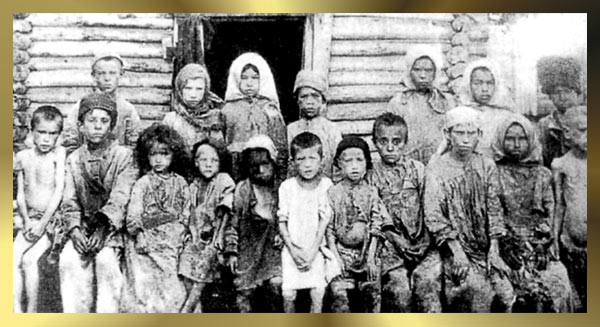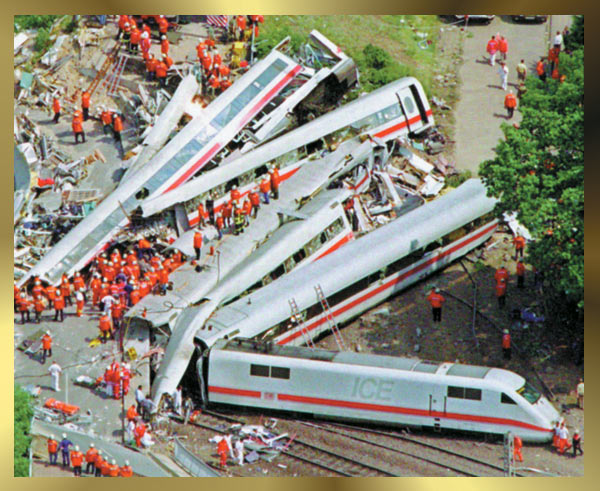From this verse, it is clear that Musa (as) did not bring his young servant along on this journey. There could be a number of good reasons for this, such as to emphasize the importance of one-to-one education, which is the best form of education. People trying to learn in a crowded environment easily lose their concentration and find it hard to refocus. Even when there are three people, one is easily distracted and finds it hard to concentrate. For this reason, the Qur'an hints at one-to-one education, for such a method makes it easy to concentrate and pay attention. Moreover, such direct communication with the instructor enables the student to learn more efficiently. This is why the benefits of private education, recognized around the world, are important.
Another matter is mentioned: Musa knows Khidhr's (as) value and that he is commanded to do much good.
This situation, like all others, takes place in destiny. Khidhr (as) had said that Musa (as) would become impatient, and thus one part of the knowledge of the future given to him was fulfilled. On the other hand, Musa (as) asks the question because it is written in his destiny. This is called a "zallah" (a slip or error made by a Prophet or Messenger). Such mistakes are part of the Prophets' and Messengers' destinies, because they lead ultimately to goodness and wisdom. By these verses, Allah informs us that such mistakes, whose time and place are known in destiny, can occur.
 "… they board a boat and he made a hole in it…" (Surat al-Kahf, 71) |
This situation, like all others, takes place in destiny. Khidhr (as) had said that Musa (as) would become impatient, and thus one part of the knowledge of the future given to him was fulfilled. On the other hand, Musa (as) asks the question because it is written in his destiny. This is called a "zallah" (a slip or error made by a Prophet or Messenger). Such mistakes are part of the Prophets' and Messengers' destinies, because they lead ultimately to goodness and wisdom. By these verses, Allah informs us that such mistakes, whose time and place are known in destiny, can occur.
Notice the certainty in Khidhr's (as) words when he reveals his knowledge of future events: that Musa (as) will not have the necessary patience to travel with him.
Surat al-Kahf 73 makes it clear that everything happens by Allah's will. People cannot speak or prevent others from speaking by their own will, for only Allah inspires them and gives them speech. Moreover, He can make every being, whether living or nonliving, say whatever He wills them to say. The Qur'an reveals that on the Day of Judgment, Allah will give speech to a person's ears, eyes, and even the skin, as follows:
When they reach it, their hearing, sight, and skin will testify against them concerning what they did. They will ask their skins: "Why did you testify against us?" and they will reply: "Allah gave us speech, as He has given speech to everything. He created you in the first place, and you will be returned to Him. You did not think to shield yourselves from your hearing, sight, and skin testifying against you, and you thought that Allah would never know much of what you did." (Surah Fussilat, 20-22)
In other verses, our Lord reveals that unless He gives permission, no being can find the power to speak:
Lord of the heavens and Earth and everything between them, the All-Merciful. They will not have the power to speak to Him. On the Day when the Spirit and the angels stand in ranks, no one will speak, except for him who is authorized by the All-Merciful and says what is right. (Surat an-Naba', 37-38)
| We have created all things with predestination. Our command is only one word, like the blinking of an eye. (Surat al-Qamar, 49-50) | ||
As we mentioned earlier, Allah creates forgetting as well as remembering, and rules over all of our mental activities, be they past, present, or future. It was written in Musa's (as) destiny that he would forget and that he would ask a question that he was not supposed to. No one can gain control over his or her brain and prevent forgetfulness or saying the words that have been written in his or her destiny. Allah makes people forget whatever and whenever He wills them to. He can take away all memory or, if He wills, place within one's memory the knowledge of things not known before. All of these happen by His will.
From Musa's (as) request "do not demand of me something that is too difficult," we understand that he does not want his education to be terminated.
Although he promises not to ask questions, Musa (as) cannot overcome his destiny and stop himself from asking these questions. In spite of knowing that Khidhr (as) acts according to Allah's command, knowing that he has deep knowledge, and saying that he is his disciple, Musa (as) reacts to what Khidhr (as) does. Therefore, another "zallah" occurs.
But we must not forget that only Allah gives and takes life. Thus, as revealed in the following verse, no one can kill another person unless Allah wills it, for:
You did not kill them; it was Allah Who killed them. And you did not throw, when you threw; it was Allah Who threw, so He might test the believers with this excellent trial from Him. Allah is All-Hearing, All-Knowing. (Surat al-Anfal, 17)
Khidhr (as) is a true servant of Allah and acts only according to His order and will. Everything he does and says conforms to His will. Besides, no one can know whether or not this life is in retaliation for another, or whether or not the child who gets killed is pure, unless Allah wills it. However, Musa (as) speaks these words because Allah wills him to do so and because it is written in his destiny.
As we also see in this narrative, Allah gives and removes, as He wills, the power to His servants to be patient. This laudable aspect of the believers is mentioned in many verses, along with the fact that only Allah gives patience. For instance, Talut's (as) army asked Allah for patience in war, as follows:
When they came out against Jalut and his troops, they said: "Our Lord, pour down steadfastness upon us, make our feet firm, and help us against this unbelieving people." (Surat al-Baqara, 250)
Surat al-Kahf 76 reveals that Musa (as) is aware of Khidhr's (as) displeasure. In spite of Khidhr's (as) assertions that Musa (as) would become impatient, Musa (as) insists that he would be patient. However, after two failures to keep his promise, he also wants to resolve the situation and so uses a new strategy of persuasion to convince Khidhr (as) not to terminate this process of education and admonition. With this goal in mind, Musa (as) gives him more assurances and guarantees so that he may prolong and continue this education for as long as possible.
Continuing their journey, Musa (as) and Khidhr (as) entered a town. However, given that they were not received favorably or offered food and shelter, we understand that their journey had been a difficult one. In this verse, Allah could be pointing to the validity of suffering any hardship in the quest for truth and beneficial knowledge. Musa (as) is prepared to suffer any hardship in order to be with Khidhr (as), so that he can benefit from his wisdom and reminders. This is also a reminder for all people, for Muslims should show the same determination and strength of character in similar situations.
 … They found there a wall about to fall down and he built it up… (Surat al-Kahf, 77) |
The verse also indicates that Khidhr (as) was particularly talented, capable and fast-acting. This can be deduced from the fact that he was able to damage the boat without anyone noticing what he was doing, and also by the quick action he took in building a sturdy wall. Allah indicates his fast decision-taking and experience by saying "They found there a wall about to fall down, and he built it up." Khidhr (as) also displayed great deftness when he made the hole in the boat, since he did so in such a way that the boat was not completely destroyed, but only rendered unusable. He was thus very familiar with the materials needed to construct a boat and a wall.
| Say: "My prayer and my rites, my living and my dying, are for Allah alone, the Lord of all the worlds." | ||
Musa (as) now asks his third and last question to Khidhr (as), who already knows, by the wisdom granted to him by Allah, whether or not to seek a wage for his work. Such a practice is not obligatory, because it depends upon the situation and circumstances. As believers do everything for Allah's good pleasure, their labor can be paid work or freely donated work. If it is paid, the money is used to win His good pleasure yet again. It is the person's individual decision whether or not to seek payment in the light of the Prophets' and Messengers' knowledge and Allah's command.
This last question of Musa (as) indicates that it is time for them to part company, for Allah has willed Musa (as) to state this condition when he earlier said: "If I ask you about anything after this, then you should no longer keep me company". Khidhr (as) declares this reason by stating that Musa (as) could not restrain himself due to his not being informed by Allah of the underlying reasons, and that he would now explain. If he had explained these reasons to Musa (as), the latter would have been able to be patient with him. In other words, we should expect ultimate goodness and wisdom in the things that the Prophets or the chosen ones do not explain.
All of the things that Musa (as) and Khidhr (as) experienced on their journey had been written in their destinies and determined by Allah. Nothing could have happened in a different way. The moment of parting, just like the timing and location of their meeting, were all known in Allah's presence, for He had written them in their destinies in the timeless past.
As the verse reveals, now that the time for parting company has come, Khidhr (as) explains his actions. In the first event, he made a hole in the boat for several good reasons.
Before revealing the reasons for Khidhr's (as) actions, it is appropriate to reflect upon his compassionate character. Khidhr (as) aided the destitute, for he wanted to prevent further hardship for them and their suffering from the oppressors' actions. This shows his sympathy for the poor and needy, as well as his compassionate and loving character. Allah's attributes of grace and mercy are focused on him. This is a distinguishing factor between the believers and the unbelievers, for Allah says:
What will convey to you what the steep ascent is? It is freeing a slave or feeding on a day of hunger an orphaned relative or a poor man in the dust; then to be one of those who believe and urge each other to steadfastness and compassion. Those are the Companions of the Right. (Surat al-Balad, 12-18)
Compassion, sympathy for the believers, and love are the most defining characteristics of Allah's Prophets and Messengers. Khidhr (as), a Messenger graced by Allah, is compassionate and loving, just like all Messengers, and has received, by Allah's will, superior knowledge. For this reason, he wanted to help the needy people by making a hole in the boat so that it would appear useless and not be confiscated by the oppressors.
Khidhr's (as) reason, foresight, wisdom, and sensibility is noticeable immediately, for he damaged it in a way that it could be repaired easily and then used again. Thus the people seeking to confiscate it will see the damage and change their mind about taking it. Once this danger has passed, the boat can be repaired easily and put back into service.
 Stalin döneminde açlığa terk edilmiş çocuklar. |
Another noticeable matter is the existence of an oppressive regime ruling over a poor people. It could have been a dictatorship. The leaders of this despotic regime could be confiscating the believers' property without justification, for which reason the believers might have been facing hardship and finding it difficult to escape the situation.
Confiscating the people's property without a just reason was common in despotic feudal and monarchical regimes of the past, and in the fascist and communist regimes of today. These totalitarian regimes took the property of defenseless people and left them destitute and hungry. Thus, this example shows that oppressive regimes have plagued humanity since the beginning of human history.
The verse reveals that the boy's parents were believers. In other words, in those days true religion existed. When Khidhr (as) took the child's life, it was Allah's will, for He had written the child's time and place of death in his destiny. Allah reminds people of this reality, as follows: "He created you from clay and then decreed a fixed term, and another fixed term is specified with Him…" (Surat al-An`am, 2). As the Qur'an also says, angels take the life of every human being:
If only you could see when the angels take back those who were unbelievers at their death, beating their faces and their backs [saying]: "Taste the punishment of the Burning!" (Surat al-Anfal, 50)
However, the angles are just a means, for in reality only Allah takes lives. Ibrahim's (as) wholehearted prayer is given as an example:
He Who created me and guides me; He Who gives me food and gives me drink; and when I am ill, it is He Who heals me; He Who will cause my death, then give me life; He Who I sincerely hope will forgive my mistakes on the Day of Reckoning. My Lord, give me right judgment and unite me with the righteous. (Surat ash-Shu'ara', 78-83)
Allah willed for Khidhr (as) to take this child's life, but He could have done it through somebody else. The boy could have been killed in an accident, by a heart attack, or by falling and sustaining a deadly head injury. As Allah makes clear: "… When their specified time arrives, they cannot delay it for a single hour, nor can they bring it forward" (Surat an-Nahl, 61). In this case, Allah determined that the angels would be the invisible agents and that Khidhr (as) would be the visible agent of this death, whereby Khidhr (as) appeared to be taking the child's life. In reality, Khidhr (as) acts by the revelation he receives from Allah, and certainly does not act against His orders. Also, he cannot act by his own will unless Allah wills so. Allah chose him to be the means for this task.
The same is true for the life that Musa (as) took, as related below:
He entered the city at a time when its inhabitants were unaware, and found two men fighting there—one from his party and the other from his enemy. The one from his party asked for his support against the other from his enemy. So Musa hit him, dealing him a fatal blow. He said: "This is part of Satan's handiwork. He truly is an outright and misleading enemy." He said: "My Lord, I have wronged myself. Forgive me." So He forgave him. He is the Ever-Forgiving, the Most Merciful. (Surat al-Qasas, 15-16)
Musa (as) intervened in a fight to help someone, but unintentionally killed the other person. Here again, he was only the means. Although that man died at Musa's (as) hands, Musa (as) was no more than the visible cause, and the angels were the invisible agents. Allah states in the Qur'an that it is the angels' duty to take lives, although ultimately it is only Allah Who does so.
No matter how much people resist, wherever they look for refuge or wherever they flee, everyone is always proceeding toward his or her death. Allah reminds us that no one can escape death: " Say, 'Even if you had been inside your homes, those people for whom killing was decreed would have gone out to their place of death.' So that Allah might test what is in your breasts and purge what is in your hearts. Allah knows the contents of your hearts." (Surah Al 'Imran, 154).
 The people who died in this train wreck probably had never pondered the meaning of the word "death" up until that point. |
No person is given a choice in this matter, and there is no way to escape it. When the appointed time for death comes, they cannot avoid the angels of death. As the Qur'an states clearly, each person will die at his or her destined time and place:
Say: "Death, from which you are fleeing, will certainly catch up with you. Then you will be returned to the Knower of the Unseen and the Visible, and He will inform you about what you did." (Surat al-Jumu`a, 8)
Wherever you are, death will catch up with you, even if you are in impregnable fortresses… (Surat an-Nisa', 78)
Khidhr (as) kills a child, about whom he has certain knowledge that his destiny is to become an unbeliever. He means to prevent the child from making his family and environment miserable, and drowning in a sea of sin, and thus takes preventive action.